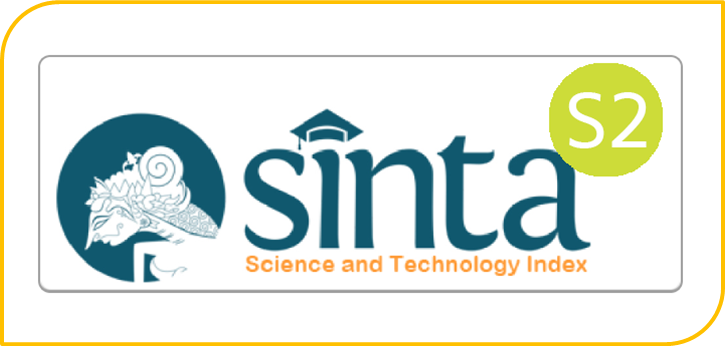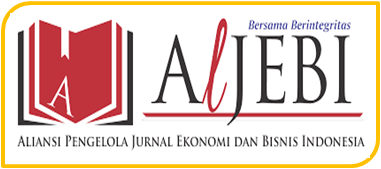INTERPRETIVE STUDY: THE MEANING OF RAHN GOLD ACCOUNTING PRACTICE IN THE PERSPECTIVE OF IMAM BUKHARI AND MUSLIM HADITH
Abstract
This research aims to determine the accounting treatment of Sharia gold pawn products at Sharia Pegadaian, which is measured by the hadith perspective of Imam Al-Bukhari. Furthermore, those used as references include the story of Armor, rides or vehicles, and the story of the Ansar men. The research method used in this research is a case study approach. The case study focuses on the accounting treatment of gold Rahn transactions from the beginning of the contract to the end of the contract. The research results show that the contracts used in Sharia Pawnshops use Rahn contracts, qardh contracts, and ijarah contracts. However, in practice, several things are not under Imam Al-Bukhari's hadith, namely loans for qardh financing, the determination of administrative costs based on the size of the loan, the classification of ijarah discount rates as a percentage, and the combination of qardh and ijarah contracts. The practices following Imam Al-Bukhari's hadith are the ijarah fee system, full payment, and auction. It is recommended that in qardh financing, the customer (rahin) be given a loan of more than 95% of the value of the gold at that time. The costs incurred by the customer must calculate Sharia pawnshop administration costs. Ijarah discounts should not be measured as a percentage, and they must be measured in nominal terms to avoid speculation. Furthermore, customers must receive justice if they borrow some funds so that they do not use two contracts in one transaction.
Keywords
Full Text:
PDFReferences
Abd Razak, A. H. (2018). Centralisation of corporate governance framework for Islamic financial institutions: Is it a worthy cause? ISRA International Journal of Islamic Finance, 10(1), 36–51. https://doi.org/10.1108/IJIF-08-2017-0020
Akhtaruzzaman, M., Boubaker, S., Lucey, B. M., & Sensoy, A. (2021). Is gold a hedge or a safe-haven asset in the COVID–19 crisis? Economic Modelling, 102(June 2020), 105588.
https://doi.org/10.1016/j.econmod.2021.105588
Ali, M. A. (2012). Evolution & Development of Islamic Banking – The Case of Pakistan. European Journal of Islamic Finance, 0(1), 1–7. https://doi.org/10.13135/2421-2172/777
Antonio, M. S. (1999). Bank Syariah bagi Bankir & Praktisi Keuangan. Tazkia Institute,1999.
Arispen, A., Hidayat, A. R., & Malik, Z. A. (2016). Analisis Fatwa DSN-MUI terhadap Penentuan Biaya Ijarah dalam Sistem Gadai Syariah di Pegadaian Syariah Situsaeur Bandung. Prosiding Keuangan Dan Perbankan Syariah, 2(1), 115–122.
Az-Zuhaili, W., Permadi, B., & Al-Kattani, A. H. (2011). Fiqih Islam wa Adillatuhu / Wahbah Az-Zuhaili ; Penerjemah, Abdul Hayyie al- Kattani, dkk ; penyunting, Budi Permadi | OPAC Perpustakaan Nasional RI. (Lengkap). Jakarta : Gema Insani, 2011.
Chariri, A. (2009). Landasan filsafat dan metode penelitian kualitatif. Workshop Metodologi Penelitian Kuantitatif Dan Kualitatif, Laboratorium Pengembangan Akuntansi (LPA), Fakultas Ekonomi Universitas Diponegoro Semarang, 31 Juli – 1 Agustus 2009.
Dewi, K. (2022). Analysis Of Ijarah Accounting Application Based On Psak 107 At Pt Pegadaian Syariah Ups Perjuangan, Cirebon. Journal of Management EConomic, and Financial, 1(1), 30–41.
Dharmayanti, N., Fatkar, B., & Syekh-yusuf, U. I. (2018). Case Analysis Of Ar-Rahn Acceptance And Accounting Treatment According To Sfas 107 Case Study Of West Java Bank Syariah. 1(2).
Edgina, L., Jazil, T., & Nursyamsiah, T. (2016). Strengthening The Role of Islamic Pawnshop in Islamic Financing for Micro Small and Medium Enterprises: ANP Approach. Tazkia Islamic Finance and Business Review, 10(1), 34–49.
Effendi, I., & Hariani, P. (2020). Dampak Covid-19 terhadap Bank Syariah : Impact of Covid-19 on Islamic Banks. EKONOMIKAWAN : Jurnal Ilmu Ekonomi Dan Studi Pembangunan, 20(79), 221–230.
Elnahass, M., Trinh, V. Q., & Li, T. (2021). Global banking stability in the shadow of Covid-19 outbreak. Journal of International Financial Markets, Institutions and Money, 72, 101322.
https://doi.org/10.1016/j.intfin.2021.101322
Hanudin, A., & Rosita, C. (2013). Determinants for ar-Rahnu usage intentions: An empirical investigation. African Journal of Business Management, 5(20), 8181–8191. https://doi.org/10.5897/ajbm11.423
Hassan, M. K., Djajadikerta, H. G., Choudhury, T., & Kamran, M. (2022). Safe havens in Islamic financial markets: COVID-19 versus GFC. Global Finance Journal, 54(December 2020), 100643.
https://doi.org/10.1016/j.gfj.2021.100643
He, H. W., & Balmer, J. M. T. (2013). A grounded theory of the corporate identity and corporate strategy dynamic: A corporate marketing perspective. European Journal of Marketing, 47(3), 401–430. https://doi.org/10.1108/03090561311297391
Hidayatullah, M. A. (2020). Rahn (Gadai). SALAM: Islamic Economics Journal, 1(2), 29–40.
Ismail, abdul G., Cokro, W., & Maamor, S. (2007). A Comparative Study of the Relative Efficiency of Conventional and Islamic Pawnshop (No. 1–11).
Khoiriyah, S. S., Paramita, M., & Pangestu, R. A. (2019). Muslim Communities Preference That Do Not Use Sharia Pawnshop. Jurnal Ekonomi Dan Bisnis Islam (Journal of Islamic Economics and Business), 5(2), 181. https://doi.org/10.20473/jebis.v5i2.14780
Lamtana, L., & Mayditri, V. (2022). Penerapan Prinsip Syariah pada Akad Rahn di Lembaga Pegadaian Syariah. In Jurnal Pendidikan dan Kewirausahaan (Vol. 10, Issue 2, pp. 422–440).
https://doi.org/10.47668/pkwu.v10i2.397
Lusardi, A. (2019). Financial literacy and the need for financial education: evidence and implications. Swiss Journal of Economics and Statistics, 155(1), 1–8. https://doi.org/10.1186/s41937-019-0027-5
Mahmudahningtyas, A., & Manzilati, A. (2015). Analisis Kesyariahan Transaksi Rahn Emas (Studi Pada Pegadaian Syariah Cabang Landungsari Malang). Jurnal Ilmiah Mahasiswa FEB, 3(1).
Manzur, I. A. (2006). Lisanul ’arabi jilid 2 _ Perpustakaan Universitas Islam Negeri Sultan Syarif Kasim Riau (jilid 2). Kairo : Darul Hadits, 2006.
Masruron, M., & Safitri, N. A. A. (2021). Analisis Perkembangan Perbankan Syariah Di Indonesia Di Masa Pandemi Covid-19. Al Birru: Jurnal Keuangan Dan …, I(1), 1–20.
Masvood, Y. (2019). A critical evaluation of articles related to islamic banking. International Journal of Recent Technology and Engineering, 8(2), 302–306. https://doi.org/10.35940/ijrte.B1057.0782S419
Maulana, H. (2016). Multiakad dalam Transaksi Syariah Kontemporer pada Lembaga Keuangan Syariah di Indonesia. Al-Iqtishad: Journal of Islamic Economics, 3(1). https://doi.org/10.15408/aiq.v3i1.2518
Mohd Thas Thaker, H., Khaliq, A., Mohd Thas Thaker, M. A. Bin, Allah Pitchay, A. Bin, & Sakaran, K. C. (2020). Drivers of Ar-Rahnu (pawn) acceptance: Malaysian evidence. Journal of Islamic Marketing, 12(7), 1241–1259. https://doi.org/10.1108/JIMA-08-2019-0161
Moleong, L. J. (2018). Metodologi penelitian kualitatif _ penulis, Prof (Edisi revi). Bandung : PT Remaja Rosdakarya, 2018.
Muin, R. (2023). Convergence of Qard and Ijarah Agreements Evidence of Gold Pawn Products from Bank Syariah Indonesia. 16(2), 110–122.
Nopianti, R., & Komarudin, M. (2016). BanqueSyar ’ i. Jurnal Ilmiah Perbankan Syariah: BanqueSyar’i, 2(2, December 2016), 189–205.
Rahman, L. A., & Suprayogi, N. (2016). Analisis Kesesuaian Akuntansi Transaksi Gadai Emas Syariah Dengan Psak Dan Fatwa Dsn Mui (Studi. Jestt, 2(11), 943–953.
Rusyd, I. (1990). Tarjamah Bidayatul Mujtahid _ Jilid 1 _ Perpustakaan UIN Antasari Banjarmasin.
Sabiq, S. (1995). Fikih sunnah jilid 9 (8th ed.). Bandung : Al Ma’arif., 1995.
Sari, A. R., & Arfan, M. (2017). Analisis Akuntansi Pembiayaan Gadai Emas Berdasarkan Psak. Jurnal Ilmiah Mahasiswa Ekonomi Akuntansi (JIMEKA), 2(3), 133–139.
Shabbir, M. S. (2020). Informal shariah pawnshop in the traditional markets of Surakarta. Journal of Islamic Marketing, 11(2), 269–281. https://doi.org/10.1108/JIMA-09-2017-0097
Sudarsono, & Heri. (2005). Bank dan Lembaga Keuangan Syari’ah Deskripsi dan Ilustrasi. In Ekonosia (pp. 1–287).
Sukardi, B., Wijayanti, N. R., & Fachrurazi, F. (2023). Literacy and strategic marketing to raise public awareness using Sharia pawnshops during the COVID-19 pandemic. Qualitative Research in Financial Markets. https://doi.org/10.1108/QRFM-12-2021-0205
Susilawati, S., Falefi, R., & Purwoko, A. (2020). Impact of COVID-19’s Pandemic on the Economy of Indonesia. Budapest International Research and Critics Institute (BIRCI-Journal): Humanities and Social Sciences, 3(2), 1147–1156. https://doi.org/10.33258/birci.v3i2.954
Trougakos, J. P., Chawla, N., & McCarthy, J. M. (2020). Working in a pandemic: Exploring the impact of COVID-19 health anxiety on work, family, and health outcomes. Journal of Applied Psychology, 105(11), 1234–1245. https://doi.org/10.1037/apl0000739
Wardhani, A., & Fanani, S. (2015). Kesesuaian Produk Gadai Emas Berdasarkan Fatwa Dewan Syariah Nasional Majelis Ulama Indonesia (Dsn-Mui) Di Bank Syariah Mandiri Surabaya. 2(12), 1019–1035.
Wiroso. (2011). Akuntansi Transaksi Syariah (Revisi 201). Ikatan Akuntan Indonesia.
Yin, R. K., & Djauzi Mudzakir, M. (2006). Studi kasus: desain & metode (Ed Revisi). Jakarta : RajaGrafindo Perkasa, 2006.
DOI: https://doi.org/10.18860/ed.v11i2.22444
Refbacks
- There are currently no refbacks.
Editorial Office:
Megawati Soekarnoputri Building
Faculty of Economics
E-mail: eldinar@uin-malang.ac.id
Universitas Islam Negeri Maulana Malik Ibrahim Malang
E-ISSN 2622-0083

El Dinar under a CC BY SA 4.0 International License.
Member of:
Indexed By:
















